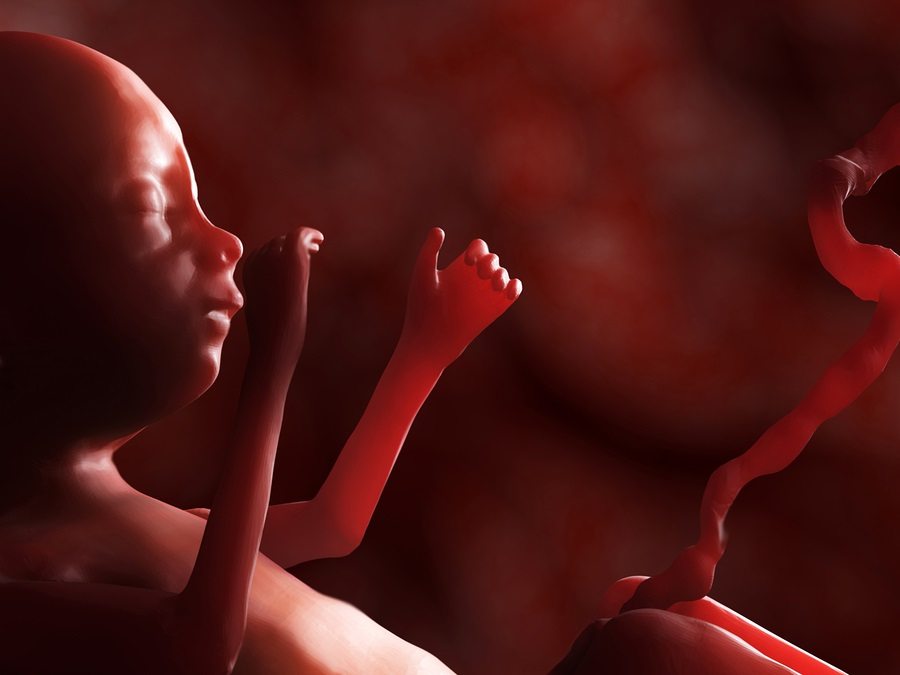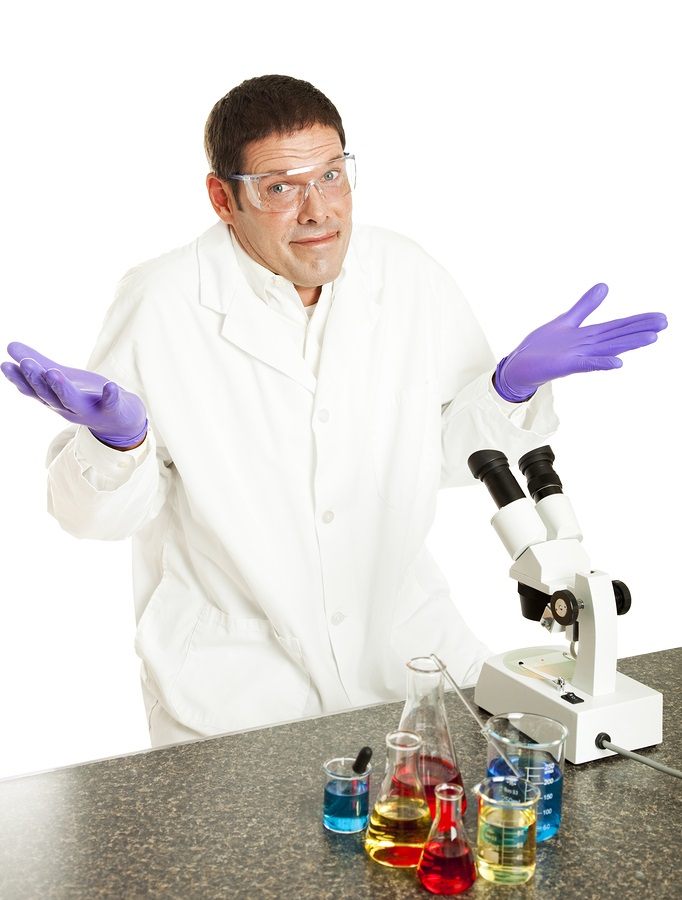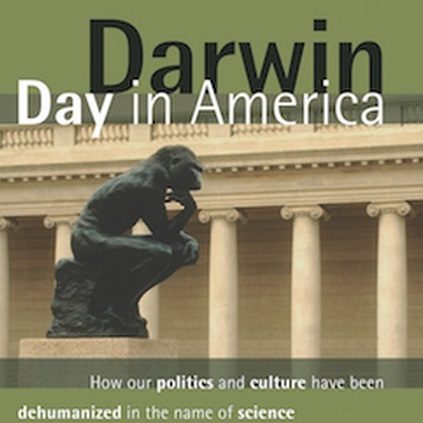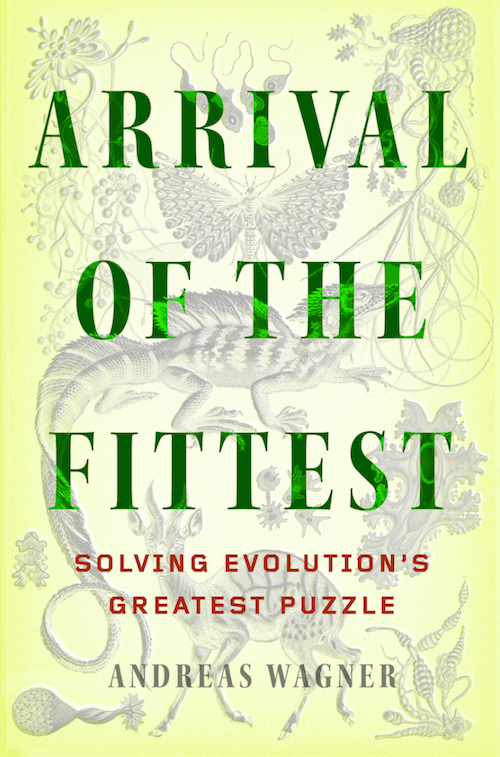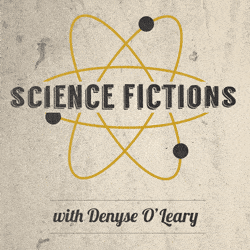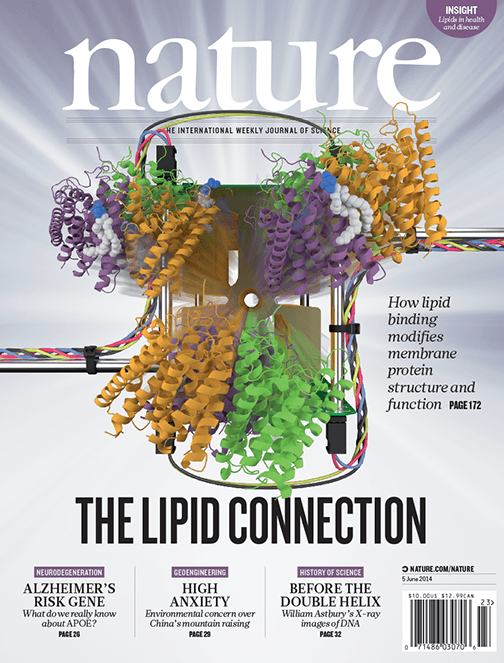The spiritual side of health from a solid foundation of creation teaching.
Stasis: Life Goes On but Evolution Does Not Happen
Species often explode suddenly into life, as in the Cambrian explosion, which even Darwin found to be a problem for natural selection. Some of them do not persist beyond the age to which they are adapted. That does not require an explanation. But others just settle down to long eons where they don't change much, no matter what the environment. And "stabilizing selection" does not account for that. The cockroach, for example, is still around and still easily identifiable after perhaps 350 million years. The 350-million-year-old coelacanth fish and the 300-million-year-old horsetail grass survive largely unchanged.
Is “Pastor” A Biblical Title for Church Leaders?
The English word "pastor" today is most often used in front of a person's name as a title of someone in a leadership position within a church or religious organization. But is this common title used so often in modern culture really biblical? Would believers in Jesus Christ in the First Century, among whom are the writers of the New Testament portion of the Bible, have used this term as a title, representing leaders and authorities? Who will follow the one true Pastor Jesus, who is the rightful owner of the one true flock, and tend to his sheep under his leadership? Who will pray in faith with the power and authority of Jesus to affect true healing for the multitudes that are suffering in the 21st century? Who will deal with the disease and effects of sin and receive the forgiveness from Jesus that cleanses and heals?
The Practice of Receiving
What do you enjoy more? Giving a gift, or receiving one? If you are like most people, you enjoying giving gifts to others more than you do receiving gifts. However, the joy you receive back in seeing someone accept your gift is 100% dependent on that person deciding to receive it. If they don't take it, they rob you of the joy you receive in giving the gift. Did you know that your unwillingness to receive gifts could keep you from entering the kingdom of God?
The Corrupting Influence of Scientism
Perhaps the greatest leap of blind, uncritical and unquestioning faith that I see among well-educated people today is something called scientism. Scientism is the belief that science is the best and only trustworthy method to discover truth. Supernatural explanations are a priori ruled out. The result is atheism dressed up as science.
Planned Parenthood Caught Selling Body Parts of Aborted Fetuses in Undercover Video
After a 3-Year investigative journalism study of Planned Parenthood, the Center for Medical Progress released its videotaped exposé filmed on July 25, 2014. The video shows two actors posing as employees of a human biologics company discussing with Dr. Deborah Nucatola, Planned Parenthood Federation of America’s Senior Director of Medical Services, how Planned Parenthood sells the body parts of aborted fetuses, using partial-birth abortions to supply intact body parts. Selling and buying fetal body parts is against federal law, a federal felony punishable by up to 10 years in prison and a fine of up to $500,000. Planned Parenthood denies that they are selling fetal body parts, and claims that the money discussed is related to transportation costs.
Is Artificial Intelligence Possible?
Over the past half-century, Artificial Intelligence has been all the rage among computer scientists, and among many other scientists and philosophers and the general public. Can machines think? Is it possible that a computer could have intentions and desires and understanding of its own? Many otherwise well-informed people have taken it for granted that machines are capable of thought, particularly if a substantial level of complexity is reached. Several philosophers and scientists have argued that AI is not possible -- machines will never be capable of thought. They are right to deny the possibility of AI. The arguments against AI are several.
Mapping the Genome and Modern Genetics: Eugenics Repackaged for Modern Times
The "science" of eugenics in America's past history resulted in racism, forced sterilization, forced vaccination, and tyrannical government policies all in the name of developing a "superior" race of people. In Germany, the "science" of eugenics was used by the Nazi Party to "eliminate" over 11 million men, women, and children. The term "eugenics" has fallen out of favor and is no longer a politically correct word to use, because of its negative stigmatization. But has the philosophy behind "eugenics" simply been replaced with the "new science" of genetics, and the mapping of the human genome? Is there reason to suspect hidden motivations of certain groups who want us to be convinced that our genes, and only our genes, control every aspect of our health and well-being? Can we trust everything we hear about the benefits of genetic research? Is there a dark side to genetics? Is America heading down the same path that eugenics led us in the past, and that led Nazi Germany up to World War II?
Eugenics in the United States Today: Are We on the Same Path Nazi Germany Followed?
The word Eugenics means "good genes." Eugenicists believe that principles of Darwin’s theory regarding “the survival of the fittest” can be used to support the elimination of weak and undesirable people from society. When Adolf Hitler applied Darwin’s theory of evolution and the principles of eugenics to the goals of the German state, the result was the murder of eleven million men, women and children. These lives were sacrificed in the name of eugenics. Eugenicists were seeking to improve the conditions of life for humanity by creating a “superior” race of people. The eugenics movement had a very dark side, which led to social control, loss of reproductive freedom, and the loss of life. Should we be concerned that modern genetic science might have a dark side as well? Will the fruit of genetic research be misused by ill-intentioned people to gain control over others as happened with eugenics in the past? Has modern genetics completely severed itself from its roots? Or, might it become the tool that will be used to try to control the lives of certain groups of people in America today, such as those who refuse vaccines?
Does Medical Science Need Evolutionary Science?
Is evolutionary theory "critical" to medicine? A poll of doctors from 2006 found that at least 34 percent of U.S. physicians think intelligence played a role in the origin of humans. That's a very significant portion of doctors who support intelligent design. On the flipside, evolutionary science has hindered medical research by promulgating the now-defunct concept of "junk DNA". That's the evolution-based idea that most of the DNA in human cells is useless junk. It's now known that the vast majority of our DNA has function, but evolution discouraged research into "junk DNA." In this regard, with its faulty understanding of "the human person" as being the result of strictly blind physical mechanisms, evolution has obstructed "advances in medicine." Many other examples could be given. For another, evolutionary science has wrongly assumed that many organs are "vestigial" and thus unnecessary or unimportant. Those organs include the appendix, tonsils, coccyx, and thyroid. It's now known that each of those organs plays an important role in human physiology. By presuming nonfunctionality or reduced functionality in these organs, evolutionary science did great medical damage to many patients.
What Should Politicians Say When Asked About Evolution?
In my talk, I not only gave an answer to the question "What Should Politicians Say When Asked About Evolution?" but I first explained why it is a difficult question for many politicians, especially conservative ones, to answer. There are three main reasons. First, the term "evolution" can mean several different things, ranging from (1) the scientifically uncontroversial idea of "change over time" (think of small-scale variations in the shape and size of Galapagos finch beaks) to (2) the more controversial notion of universal common ancestry (think of Darwin's tree of life) to (3) the increasingly controversial idea that the mechanism of natural selection and random mutation have produced all the forms of life we see today without any guidance or design. The last meaning of "evolution" is what Richard Dawkins calls the "Blind Watchmaker" thesis.
Should Creation Teacher Spend the Rest of His Life in Prison?
Kent Hovind is a Creation Science teacher and Baptist minister who became well known for debating university professors and refuting Darwinian evolutionary theory. He has served eight years of a ten-year prison sentence, and he is now fighting a new charge that would put him behind bars for the rest of his life. His next trial starts Monday May 18th. Kent Hovind's teachings, much like many of the topics we cover here at Health Impact News, go against mainstream media and education regarding such topics as the medical system, vaccines, GMOs, and of course Darwinian biology. Mr. Hovind was a biology science teacher for 15 years before he began a full-time creation ministry. Did Mr. Hovind actually break any laws, or is he a political prisoner? He was charged and convicted for "structuring," which is the "crime" of taking too much cash out of your own bank account. The judge in the case called Mr. Hovind "worse than a rapist." Mr. Hovind spoke on the Joyce Riley "Power Hour" talk radio show this past week from county jail.
“Darwin Day in America” Book Exposes the Rise of Totalitarian Science
Is America entering an era of "totalitarian science"? In the expanded paperback edition of Darwin Day in America, political scientist John G. West describes the growing misuse of science to curtail basic freedoms, erode time-honored ethics, and circumvent democratic accountability. "Our culture is witnessing the rise of what could be called totalitarian science -- science so totalistic in its outlook that its defenders claim the right to remake every sphere of human life, from public policy and education to ethics and religion," says West. "Science is a wonderful enterprise, but in the Obama era, it's being twisted in ways that are unhealthy for both science and society."
How Natural Selection Cannot Explain Arrival of the Fittest, Only Survival of the Fittest
In 1904, genetics pioneer Hugo de Vries quipped that "natural selection may explain the survival of the fittest, but it cannot explain the arrival of the fittest." In 2014, Andreas Wagner thinks it can. His new book, reviewed by Mark Pagel in Nature, is titled Arrival of the Fittest: Solving Evolution's Greatest Puzzle. What is that "greatest puzzle"? The ability to work miracles.
Does Modern Science Hinder Skepticism? The Eugenics Example
One of the important and counterintuitive insights that C.S. Lewis offered was his observation that far from encouraging skepticism, the mention of "science" can call forth a perilous gullibility, not least from educated, intelligent people who should know better. Healthy skepticism is a cornerstone of the scientific process. Knowledge is advanced and new discoveries are made by challenging scientific results and testing alternative hypotheses. Lewis recognized, though, that science can also promote an uncritical acceptance of views that are said to be backed by science or wrapped in science-y language. In Lewis's time, most scientists supported eugenics, or the belief that the gene pool of humans should be improved, and they argued that their views were supported by science. These views led to policies such as forced sterilization of those deemed to be of less worth, such as criminals and the handicapped. These policies were not only popular in authoritarian regimes like Nazi Germany, but in democracies such as the United States and England. Anyone who opposed what the vast majority of scientists were saying must be "anti-science," it was argued. So what has changed since then? Are we supposed to believe that just a century ago, elite opinion in science and in the culture at large was so terribly fallible and vulnerable to being misled by prejudice -- yet today, it cannot err?
Dr. Offit Wants to Eliminate Religious and Philosophical Vaccine Exemptions
We have previously reported how Dr. Paul Offit, the mainstream media's go-to doctor to support vaccines, has huge conflicts of interest, and is a very dangerous man. We mentioned how Paul Offit wants mandatory vaccines for every single child in the United States, and he feels his voice in the matter should over-rule parental choice. So with the mainstream media giving him basically a free pass to preach his message, Offit has attacked anyone who dares to question his view on vaccines. Earlier this year, he publicly stated at the Health Journalism 2014 meeting that journalists should NOT be balanced in their reporting about vaccines. He wants only one side reported, his side, and he stated publicly that journalists who publish the other side should go to "journalism jail." Offit thinks that only medical exemptions should be issued for vaccines, and has campaigned for ending religious and philosophical exemptions. Allowing only medical exemptions would give complete control of America's school-age children to the medical system in regards to vaccines. So should doctors like Offit be considered authorities on religious and philosophical exemptions to vaccines? He claims science trumps philosophy or religion. So if you object to things in vaccines such as cells from aborted human embryos, monkey kidneys, aborted calf fetus blood, mouse brains, etc. - too bad. According to Offit, only doctors should make those decisions. For a response to Dr. Offit by another doctor, Dr. Suzanne Humphries, we republish with her consent a previous rebuttal she wrote to Dr. Offit below. Turns out that not all doctors agree with Offit after all...
When Biologists Think Like Engineers: How the Burgeoning Field of Systems Biology Supports Intelligent Design
Opponents of the intelligent design (ID) approach to biology have sometimes argued that the ID perspective discourages scientific investigation. To the contrary, it can be argued that the most productive new paradigm in systems biology is actually much more compatible with a belief in the intelligent design of life than with a belief in neo-Darwinian evolution. This new paradigm in system biology, which has arisen in the past ten years or so, analyzes living systems in terms of systems engineering concepts such as design, information processing, optimization, and other explicitly teleological concepts. This new paradigm offers a successful, quantitative, predictive theory for biology. Although the main practitioners of the field attribute the presence of such things to the outworking of natural selection, they cannot avoid using design language and design concepts in their research, and a straightforward look at the field indicates it is really a design approach altogether.
Researchers Ran a Massive Yearlong Experiment to Get Bacteria to Evolve. Guess What Happened?
It's a struggle out there. You have to be fit to survive. When the pressure is on, nature favors the ones who can take the heat. It's a theme that has been drummed into our heads since school. It's a cultural meme. Social Darwinists used it to justify atrocities. Today's kinder, gentler Darwinists downplay the violence in the struggle for existence, yet the fact as they see it is inescapable: environmental circumstances select random genetic mutations that confer fitness, i.e., survival, by allowing organisms to adapt. That in a nutshell explains the development of complex life forms. We're assured there are gobs of evidence for it, too. Looking into a recent paper in PNAS about evolutionary fitness tradeoffs, you have to feel sorry for a team of five evolutionists from UC Irvine who did their level best to produce clear evidence for the favored story.
What Can We Responsibly Believe About Human Evolution?
The evolution of consciousness is presently inexplicable: Can we really understand a transition from the excrement-throwing ape to the early cave paintings as a long, slow series?
Medicine: Idolatry in the Twenty First Century
A honest look at our present day medical system and its relationship to idolatrous religious practices throughout history involving such activities as child sacrifices. Is modern-day medicine the new religion?
Study: Fats More Complex Than Previously Thought – Essential to Good Health
Throughout most of the history of human nutrition, fats and oils (lipids) have been considered healthy and desirable. In the Bible, the most ancient writings known to man and the world's best-selling book, oil is always mentioned in a positive light, whether it be aromatic anointing oils or dietary oils: "He will love you and bless you and multiply you; He will also bless the fruit of your womb and the fruit of your ground, your grain and your new wine and your oil..." (Deuteronomy 7:13) "When the Almighty was yet with me, and my children were around me; When my steps were bathed in butter, and the rock poured out for me streams of oil!" (Job 29:5-6) "There is precious treasure and oil in the dwelling of the wise..." (Proverbs 21:20) Modern dietary history has been an anomaly in condemning certain dietary fats, especially since the 1970s when official USDA dietary guidelines condemned saturated fats, in spite of their long history of use in human nutrition. Much of modern science is based on Darwinian evolution, however, and faulty premises that often don't hold up in real science. Much of the "science" regarding dietary fats and oils has today been proven false, and the field of lipids (fatty acids) is bringing to light what the ancients inherently already knew: that fats and oils were key nutritional components essential to good health. Evolution and News brings a good commentary on the journal Nature's June cover issue regarding lipids, showing how they are the building blocks of membranes, and pointing to a master designer rather than a result of pure chance via evolution.








